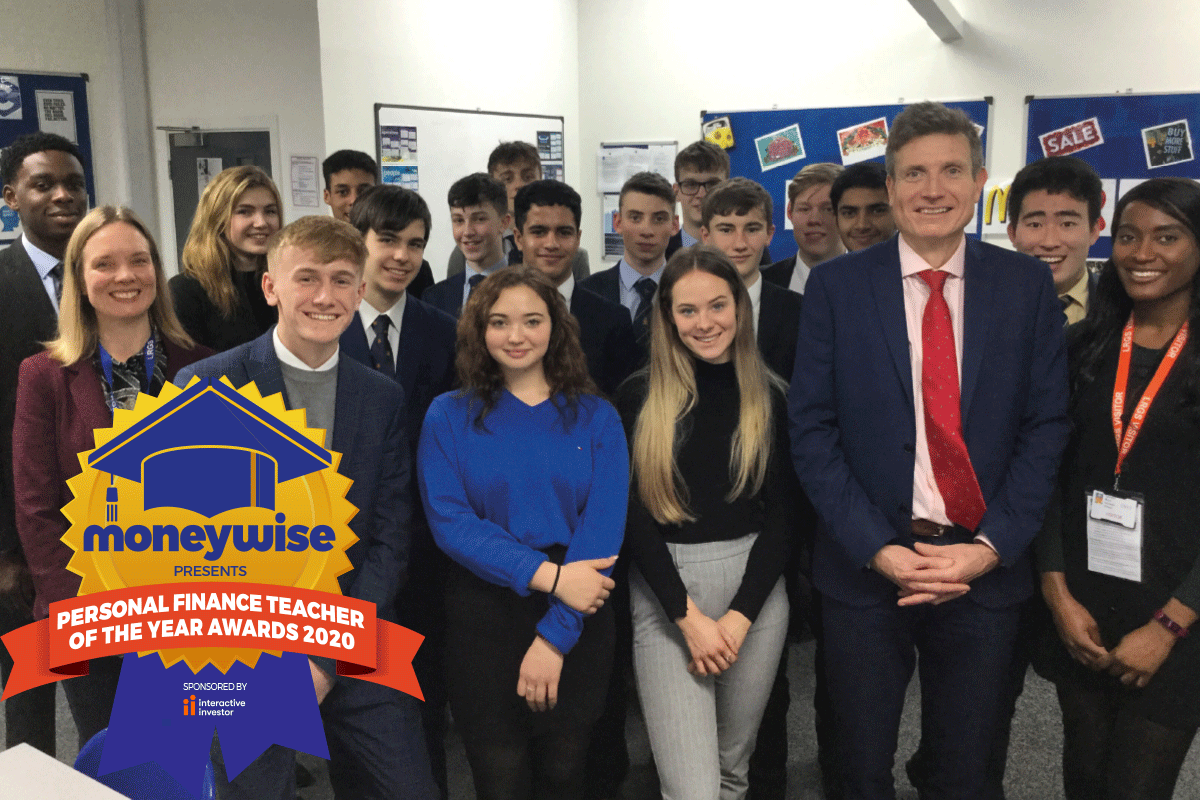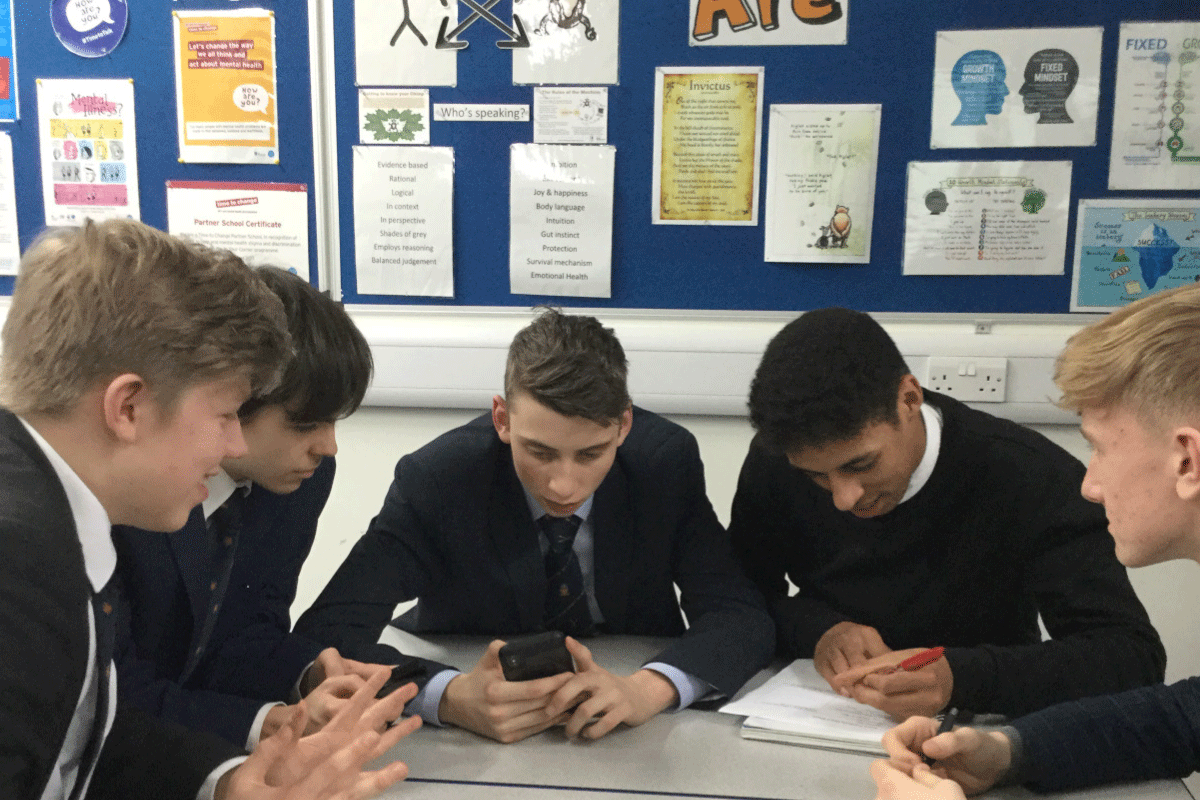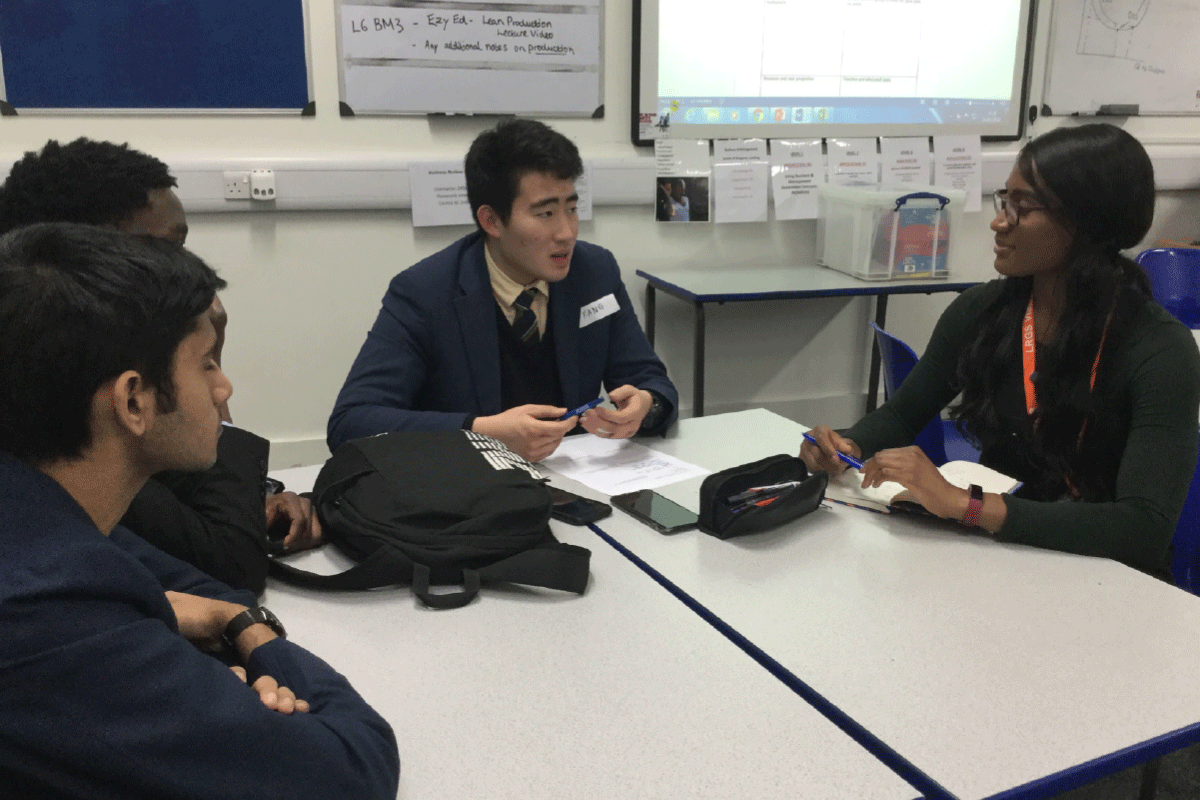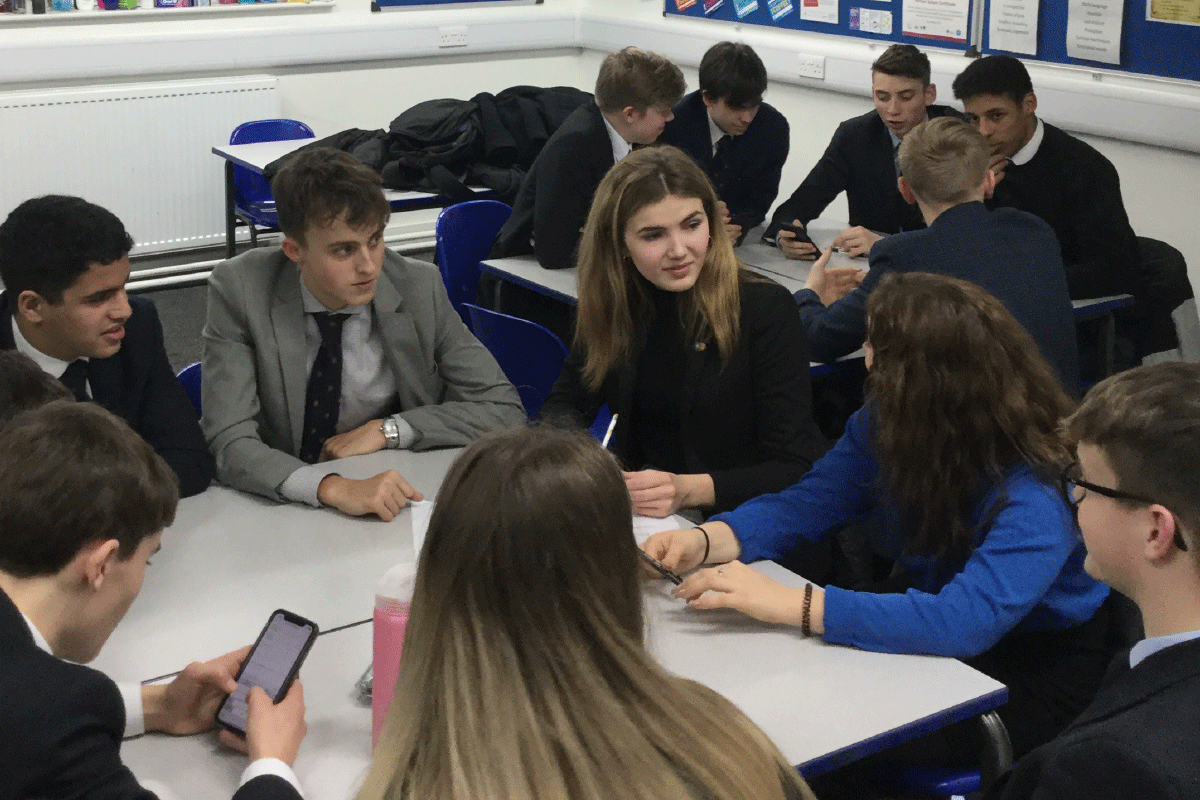Inside the classroom of a top personal finance teacher
We spent a morning at Lancaster Royal Grammar, learning how the school's students have benefitted from …
25th February 2020 14:28
by Brean Horne from interactive investor
We spent a morning at Lancaster Royal Grammar, learning how the school's students have benefitted from his passion for investing

“If there’s one thing I’ve learnt during my time investing, it’s the importance of compounding.”
It is 9am on a Thursday in February, and Russell Wareing begins giving his lesson on personal finance to his form class.
“Einstein once said that compounding is the eighth wonder of the world, that’s why it’s best to start investing early in your life,” he tells the group of sixth-formers.
Wareing’s introduction to the world of investing brings his year-13 class to life.
When he asks them whether he should invest in Luckin Coffee – a new Chinese coffee company pegged to challenge Starbucks – they share valuable insight.
“It might be better to invest in coffee as an industry rather than the single company, to spread your risk,” one student suggests.
“Coffee is a personal choice, so Luckin may not be able to sway as many customers as you think. Maybe hold off buying shares for now,” says another.
Wareing has worked as head of economics and business at Lancaster Royal Grammar School (LRGS) for 13 years.
His top priority has been to help students relate their business and economics studies to their own lives, something his students find invaluable.
“Mr Wareing makes it easy to understand and shows us how investing works in everyday life,” says Cai, a year-13 student. “One of my highlights has been following his investment journey.
“He always shares updates about his favourite stocks and new companies that have caught his eye. It helps us put investing into context.”
Taking investing to the next level

Wareing is keen for his students to experience investing and he encourages them to explore it outside of the classroom.
Each year LRGS students take part in the London Institute of Banking and Finance Student Investor competition, in which teams from schools across the UK compete to see who can best invest a virtual sum of £100,000.
Year-12 students also compete in the Shares4Schools competition, through which they invest £2,000 of real money into the stock market and compete against other schools.
Cai’s lessons in the classroom and participation in the competitions have inspired him to start investing himself.
“I’m quite early on in my personal investment journey,” he says. “I’ve recently started my first job and I’m trying to find the best option to save my money.
“In the future I hope to hold a well-diversified portfolio of investments.”
Leading in personal finance
Although investing was the topic of today’s class, Wareing teaches a variety of personal finance subjects ranging from exchange rates and holiday destinations to interest rates and mortgages.
He has spent the past two years developing a personal finance programme with schools from Cyprus, Finland and Italy through Erasmus +.
The project aims to teach students aged 14 and over the basics of personal finance topics in the UK and across Europe. Topics covered include bank accounts, tax and budgeting.
He is committed to ensuring that students are able to access key information that could help shape their financial futures.
Empowering students with tangible financial knowledge forms part of the ethos at LRGS.
“We strive to lay the bedrock of our students’ financial futures. We want to help them make more informed financial decisions through their lives,” says Chris Pyle, headteacher at LRGS.
“Personal finance lessons are really important”
The students at LRGS show great enthusiasm for the extensive personal finance curriculum covered at the school.
“I think that our personal finance lessons are really important,” says Kang, a year-12 student at the school.
“Finance affects our everyday lives, so we really do need to understand how it all works..
“For example, learning how to plan and manage an effective budget is a must. As we become more financially independent over time, we will need to understand how to make sure we have enough money to live on,” he says.
For Kang, a solid understanding of the basics of personal finance unlocks opportunities to start building financial stability in the future too.
“Once you have the foundations in place, you can start thinking about how to grow your money,” he continues.
“You can start looking at options such as saving and investing.”
Personal Finance Teacher of the Year Award winner
After being prompted by a colleague, Wareing decided to nominate himself for the Moneywise Personal Finance Teacher of the Year Awards 2019.
“The application process was quite simple,” he says. “I submitted a statement along with a presentation and one of the videos we made about mortgages.”
In recognition of his dedication to investment education, he was awarded £1,500 to spend on personal finance at the school.
“I was honoured to be shortlisted for an award and extremely delighted to actually win. Personal finance is so important, and we’ve found that pupils are really interested in learning about it. Simply giving them the opportunity to do it could be life changing,” he says.
The prize will be used to fund new equipment at the school to help enhance the teaching of personal finance, business and economics.
This includes converting a social space in the school into a new enterprise hub. This will be equipped with resources to help facilitate the teaching and learning of personal finance, investing and entrepreneurship.
“I would encourage anyone who teaches some element of personal finance to apply for this award. It’s spurred us on to do even greater things for our students,” he says.
The future of personal finance at LRSG

LRSG plans to expand personal finance teaching at the school.
Louise Wareing, a history teacher at the school, and married to Russell, is spearheading a new project with him that they have called Entrecomp.
They have worked with schools from Cyprus, Italy, Romania and France to create the programme, which aims to help students develop entrepreneurial competencies to take them throughout life.
A two-year pilot for Entrecomp will run from 2021.
The couple hope it will encourage other schools to teach students about financial and economic literacy.
As part of the Entrecomp programme, students can take part in extracurricular activities, such as the Prince’s Trust Money Makers programme.
The scheme, which is being piloted, challenges students to come up with a business idea that turns £100 into £2,000 in three months.
The Money Makers scheme is voluntary, so students at LSRG dedicate free time in their timetables to take part.
Eighteen students are working together in three teams with the aim of developing concepts that could help them secure funding from the Prince’s Trust.
From organising themed events to opening a tuck shop, the students came up with an abundance of ideas to research and develop for a business pitch.
Nominate a great personal finance teacher
You’re never too young to learn about personal finance, and at Moneywise we understand the importance of getting to grips with the basics.
That’s why we created the Moneywise Personal Finance Teacher of the Year Awards.
There is £24,000 worth of cash prizes from our parent company, interactive investor, to be won this year.
The competition is open to both primary and secondary schools, and winners could be awarded up to £5,000 for their amazing work.
We are now accepting entries for 2020, so if you teach personal finance at a school or know someone who does, it is time to get nominating.
How to enter the awards

Nominations for the Moneywise Personal Finance Teacher of the Year awards can be made by anyone (including parents, guardians and pupils) who is resident in the UK.
Nominations made on behalf of someone else, should be emailed to editor@moneywise.co.uk before 17:00 on Thursday 9 April with the teacher’s name, and the name and address of the school.
Teachers will then be contacted and asked to submit at least one plan for a personal finance lesson and a supporting statement by 17:00 on Thursday 23 April 2020.
Teachers can also nominate themselves by sending at least one personal finance lesson plan and a supporting statement to editor@moneywise.co.uk by the above date, along with their name, the name and address of the school and their email address and telephone number.
The first 250 teachers who submit an entry for themselves will each receive a £50 Amazon voucher.
Only one entry may be submitted by any person.
The winners will be selected by a panel of judges appointed by Moneywise during May 2020. Judging will be on the basis of the lesson plans and supporting statements supplied alongside nominations.
Winners will be notified via mail, telephone or in person once the judges have made their final decision.
Prizes will be awarded at Moneywise’s glittering Customer Service Awards ceremony, which will take place in London on 4 June 2020.
The full terms and conditions can be found here.
This article was originally published in our sister magazine Moneywise, which ceased publication in August 2020.
These articles are provided for information purposes only. Occasionally, an opinion about whether to buy or sell a specific investment may be provided by third parties. The content is not intended to be a personal recommendation to buy or sell any financial instrument or product, or to adopt any investment strategy as it is not provided based on an assessment of your investing knowledge and experience, your financial situation or your investment objectives. The value of your investments, and the income derived from them, may go down as well as up. You may not get back all the money that you invest. The investments referred to in this article may not be suitable for all investors, and if in doubt, an investor should seek advice from a qualified investment adviser.
Full performance can be found on the company or index summary page on the interactive investor website. Simply click on the company's or index name highlighted in the article.